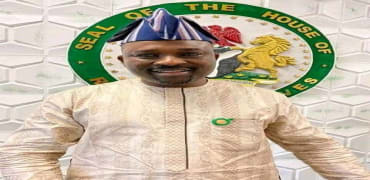NYSC Set for Major Overhaul as FG Inaugurates Reform Committee
NYSC Set for Major Overhaul as FG Inaugurates Reform Committee
By Achimi Muktar
In a bold move that could redefine one of Nigeria’s most iconic youth institutions, the Federal Government has inaugurated a National Youth Service Corps (NYSC) Reform Committee to overhaul the scheme in response to growing national challenges and evolving socio-economic realities.
Speaking during the inauguration ceremony in Abuja, the Minister of Youth Development, Ayodele Olawande, described the reform as a “critical step forward” in modernising the NYSC for the next generation.
“Today signifies an important step forward in our collective journey to improve one of Nigeria’s most valuable national institutions dedicated to unity, empowerment, and development,” Olawande said.
Since its establishment in 1973, the NYSC has been at the forefront of fostering national unity and equipping young graduates with community service experiences. But with rising concerns over corps members' safety, outdated infrastructure, and questions surrounding the scheme’s relevance, the government says the time for change is now.
What the Committee Will Do
According to Olawande, the committee will embark on a wide-ranging review of existing NYSC policy documents and practices. Their mission? To reimagine the scheme as safer, more innovative, and impactful.
Among its responsibilities:
Reviewing existing laws, policies, and operational structures of the NYSC.
Engaging stakeholders nationwide for inclusive input.
Recommending legal, policy, and institutional reforms.
Exploring improved funding models and monitoring frameworks.
The committee is expected to submit a comprehensive reform blueprint to the Minister of Youth.
Big Ideas on the Table: Teachers’ Corps and Medical Corps
During the inauguration, Special Adviser to the President on Policy and Coordination, Hadiza Usman, highlighted the need for better alignment between vocational training and formal education—ensuring that young Nigerians graduate not just with degrees, but with practical, job-ready skills.
Adding momentum to the reform agenda, the Minister of State for Education, Tunji Alausa, proposed two major new initiatives:
A Teachers’ Corps for NCE-certified graduates to serve in underserved schools for two years.
A Medical Corps of healthcare professionals who would volunteer in rural health centres, especially in maternal and child care.
Alausa said both corps would offer clear pathways into government employment while plugging critical gaps in Nigeria’s education and health sectors.
A New Era for NYSC?
As expectations mount for the committee's recommendations, thousands of young Nigerians—and the communities they serve—are watching closely. Will the NYSC evolve into a more dynamic, responsive institution? Can it truly reflect the realities of a 21st-century Nigeria?





















